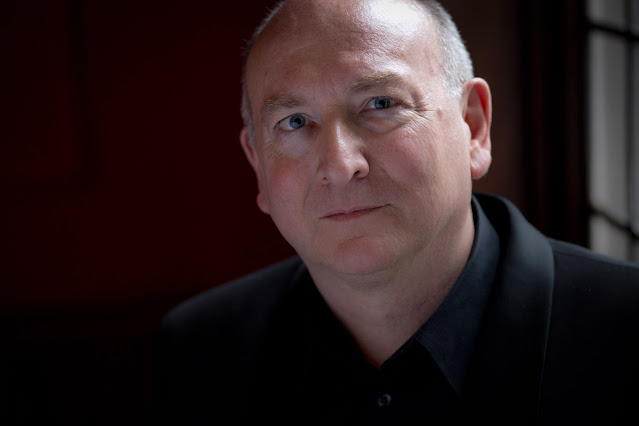Why were the Renaissance inventors of opera so obsessed
with the myth of Orpheus?
Two reasons: first, when opera was new—and even today—an
obvious question is, ‘Why are these people singing at each other instead of
speaking?’ But if your protagonist is the semi-god of music, and he’s
surrounded by all these nymphs and shepherds from the pastoral world, you’ve created
a reality where it makes sense that everybody would sing all the time. Also,
those Renaissance artists liked what the story says about the power of music. Orpheus
can tame wild beasts through music, and even has the power to go to hell and
bring Eurydice back.
You’ve worked on lots of Orpheus operas. Do you
have a favorite?
Yes, for the first two hundred years of opera, they were constantly
writing operas about Orpheus. Claudio Monteverdi and Christoph Willibald Gluck
get performed a lot. The Orfeo of Luigi Rossi (1647) is a fantastic
piece, well worthy of revival. They just gave it at Juilliard. And Marc-Antoine
Charpentier’s incomplete Descente d’Orphée aux enfers (1686) has
some of the most sublime music I know. Antonio Sartorio’s (1672) is another
favorite. Near and dear to my heart is La morte d’Orfeo of 1619 by
Stefano Landi. We gave that one last year with the Young Artists of L.A. Opera at
a flamenco bar in Silverlake. It’s a sequel to Monteverdi’s Orfeo of
1607; it shows Orpheus being torn limb from limb by the wild Bacchantes. And
now that he’s actually dead, he goes to find Eurydice in the underworld, but
she doesn’t recognize him anymore
 |
| La morte d'Orfeo at El Cid in Silverlake in 2020. Credit: Craig T. Matthew / LA Opera |
Actually, the ending of Monteverdi’s Orfeo is debated. The libretto and score don’t agree. In the libretto, the wild women tear Orpheus limb from limb, and his head goes floating down the river (as happens in Ovid’s Metamorphoses). But that opera was written for a wedding, and apparently somebody said, “That ending just isn’t appropriate,” so they wrote the ending where Orpheus joins his father Apollo in heaven. I just wrote new music for the first ending, the one from the printed libretto, doing my best to use Monteverdi’s musical language. We’ll perform my new ending at a concert in Seattle next May.
You and your colleagues have eliminated the deus ex machina happy
ending that concludes Gluck’s opera.
Tell us about how this Orpheus will end.
Yes, I’ve always felt the happy ending of the 1762 Vienna
version feels a bit tacked-on, like an appendage. [Stage Director] Chía Patiño
suggested changing the ending and using the plaintive flute solo, which Gluck added
(for his 1774 French version) to the Elysian Fields scene. We’ll conclude with
just harp, as Orpheus, and flute, as the soul of Eurydice. I’m excited about
this new, more melancholy ending.
Have you worked on Gluck’s opera before?
Many times, but only once before with a countertenor. Early music
works best when you perform it in the register for which it was written. And
countertenors have come a long way from the hooty, pure, choir-boy sound they
used to make sixty, seventy years ago...we now have amazing virtuosos, with
potent voices for opera.
How was Gluck’s Orfeo
different from the typical 1760s opera?
He puts the story-telling power of music center stage, and just
goes straight for the jugular. Think of his “Hell” music. It’s so imposing!
Without refinement, without curlicues. No composer before him would have done
something that bald. To me, that’s its great strength. At that time, Italian
opera was mostly just virtuoso solos. Gluck infuses it with virtues from the
French tragédie lyrique: lots of dance, spectacle, and instrumental music. And
complex extended recitatives, like the long dialogue between Orpheus and
Eurydice when they’re en route back to earth from hell. There, Gluck sets his
performers a really difficult task: the orchestra must ebb and flow with the ever-changing
emotions of the singers. The players must understand the scene deeply, in a way
that challenges industry practice (then as now!).
When Orpheus grieves his lost love (in his final aria, “Che
farò senza Euridice”), why is it in a major key?
Today we tend to think Major = Happy and Minor = Sad. That
wasn’t what they thought in the seventeenth and eighteenth centuries. Think
about the German terms, Dur and
Moll. In that way of thinking, Major = Hard, Minor = Soft.
Major keys were used for anything harsh or heroic, minor keys for tenderness.
But this aria is still unusual: I think it’s about submission to fate. And
Gluck wanted to give Orpheus something heart-rendingly beautiful to sing.




No comments:
Post a Comment